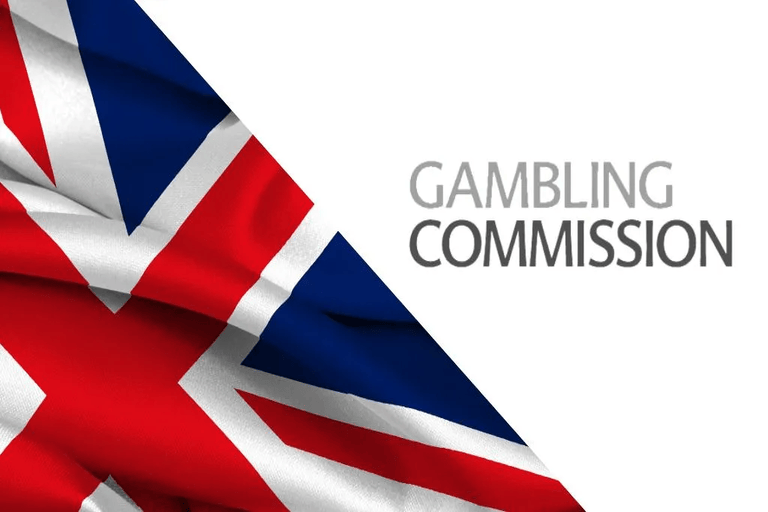UK’s Gambling Addiction Crisis – Is the Licensing System Failing?

You may be unaware that the UK is grappling with a significant gambling addiction crisis, affecting countless individuals and families across the nation. The current licensing system, which was designed to regulate this growing industry, is under scrutiny as questions arise about its effectiveness and adequacy in protecting vulnerable players. In this blog post, we will explore the implications of gambling addiction in the UK and examine whether the existing licensing framework is truly serving your best interests or if reform is urgently needed.
Understanding Gambling Addiction
The issue of gambling addiction is a growing concern in the UK, impacting individuals and families alike. It is vital to recognize the characteristics and implications of this condition to better understand its significance within the broader gambling crisis.
Definition and Symptoms
For many, gambling addiction manifests as an uncontrollable urge to gamble, causing distress and dysfunction in daily life. Symptoms may include preoccupation with gambling, withdrawal symptoms, deceitfulness about gambling behavior, and an escalating need to wager larger amounts of money.
Prevalence Rates in the UK
With recent studies indicating that approximately 0.5% to 1% of the UK population experiences gambling addiction, the issue has reached alarming levels. The rise of online gambling platforms has further contributed to this trend, making it easier than ever for individuals to engage in potentially harmful behaviors.
Prevalence rates have shown worrying trends, particularly among younger demographics, where it is estimated that 1.5% of young adults are affected. This alarming statistic highlights the urgent need for targeted interventions and support systems to assist those grappling with gambling addiction.
Psychological and Social Impacts
Definition-wise, gambling addiction often leads to severe psychological distress, including anxiety and depression. You may find that relationships with family and friends deteriorate due to the secrecy and dishonesty surrounding gambling activities.
Understanding the psychological and social impacts of gambling addiction is crucial for recognizing the full scope of the problem. Many individuals struggle with feelings of isolation and shame as their addiction progresses. You may notice that strained relationships and financial difficulties can lead to a vicious cycle, exacerbating the mental health issues already at play and making recovery even more challenging.
Historical Context of Gambling in the UK
Overview of Gambling Laws
You should understand that the evolution of gambling laws in the UK reflects societal attitudes towards betting and gambling activities over many centuries. Initially, gambling was largely unregulated, allowing various forms of betting to flourish. However, as the impacts of gambling became more apparent, particularly on public health and social issues, legislation began to take shape to address these concerns.
The 2005 Gambling Act
The 2005 Gambling Act marked a significant turning point in the regulation of gambling in the UK, introducing a comprehensive framework for the licensing and operation of gambling establishments. This legislation aimed to ensure that gambling is conducted fairly and openly, while also protecting children and vulnerable persons from being harmed or exploited by gambling activities.
Another key aspect of the 2005 Gambling Act was the establishment of the UK Gambling Commission, which was tasked with overseeing the gambling industry, issuing licenses, and enforcing compliance. The Act sought to modernize regulations, allowing for the growth of online gambling and betting shops, further intertwining gambling with technology. While the Act aimed to create a safer gambling environment, it has also sparked debates on whether it effectively addresses the rising concerns surrounding gambling addiction.
Changes in the Gambling Landscape
The gambling landscape in the UK has seen dramatic shifts over the years, particularly with the rise of online gambling and mobile gaming. These new forms of gambling have dramatically altered how players engage with betting, resulting in increased accessibility and, consequently, exposure to gambling-related harm.
A notable change is the proliferation of online casinos, sports betting platforms, and gaming apps, making it easier for individuals to gamble anytime and anywhere. This convenience has led to concerns over gambling addiction becoming more prevalent, as traditional measures of accountability and protection may not be as effective in the digital realm. Understanding these changes is crucial in assessing the efficacy of the current licensing system in preventing gambling-related harm.
The Current Licensing System
All gambling activities in the UK are regulated under a framework that emphasizes the importance of responsible gambling, player protection, and the integrity of the market. It is crucial for you to understand how the licensing system operates and its impact on the gambling landscape.
Overview of Licensing Authorities
The UK Gambling Commission (UKGC) is the primary authority responsible for regulating gambling activities across the country. Your trust in the system hinges on the UKGC's role in ensuring that operators comply with legal standards, promote fair play, and safeguard players' interests.
Types of Licenses Issued
Licenses are issued based on the type of gambling activity the operator intends to offer. You should be aware that different licenses cater to various forms of gambling, ensuring that operators meet specific requirements. Here is a breakdown of the relevant licenses:
| License Type | Description |
| Remote Gambling License | For online gambling operations such as casino games and sports betting. |
| Non-Remote Gambling License | For physical venues like casinos and betting shops. |
| Lottery License | For organizations wishing to run lotteries or prize draws. |
| Gaming Machine License | For businesses that offer gaming machines in their establishments. |
| Alcohol and Gaming License | For pubs and clubs that want to offer gambling alongside alcohol services. |
Knowing the different types of licenses can help you navigate the gambling landscape and identify reputable operators.
Regulatory Framework and Guidelines
Framework encompasses various guidelines established to regulate gambling practices effectively. You must be informed about these guidelines as they shape the obligations of operators to ensure that gaming is conducted fairly and openly.
To provide clarity, the regulatory framework operates based on principles such as promoting responsible gambling, protecting children and vulnerable individuals, and ensuring that gambling is fair, transparent, and free from crime. You should familiarize yourself with these guidelines to empower your choices as a consumer in the gambling market. This creates a safer environment for everyone involved.
Effectiveness of the Licensing System
Now, it's necessary to evaluate the effectiveness of the UK's gambling licensing system. While the framework aims to promote responsible gambling and protect vulnerable individuals, questions arise regarding its overall efficacy in curbing the addiction crisis.
Success Stories in Regulation
Stories of successful regulation abound, showcasing instances where the licensing system has made a positive impact. For example, operators that have embraced responsible gambling measures and implemented robust player protection protocols often report higher customer satisfaction and reduced complaints. These success stories highlight the potential of a well-enforced licensing regime to foster safer gambling environments.
Failures and Loopholes in Oversight
Licensing efforts have not been without their shortcomings. There are significant failures and loopholes in oversight that jeopardize the integrity of the licensing system. These may include inadequate enforcement of existing regulations, leading to operators exploiting gaps in the law, thus putting players at risk of addiction and financial harm.
Success in addressing gambling addiction hinges on a robust licensing framework; however, many operators exploit loopholes that the regulatory bodies fail to close. For instance, some operators may circumvent established safeguards by offering promotional tactics that encourage excessive gambling. It is crucial to enhance the mechanisms in place to ensure that the licensing system adapts to the evolving landscape of online gambling and maintains its focus on player protection.
Comparison with International Licensing Models
Models from various countries illustrate different approaches to gambling regulation. The following table highlights key differences between the UK's licensing framework and other notable international models:
International Licensing Comparison
| Country | Approach to Licensing |
|---|---|
| UK | Focus on player protection; comprehensive but carries loopholes |
| Sweden | Strict regulations with emphasis on responsible gambling initiatives |
| Australia | Varied state-based licensing; some states have proactive measures |
Systematic evaluation of international licensing models can provide valuable insights for the UK. Adopting some of the best practices from countries like Sweden, known for its stringent regulations and successful player safety initiatives, might bridge the existing gaps within the UK's licensing system, ultimately leading to a more effective way to combat gambling addiction.
Contribution of Online Gambling
Rise of Online Gambling Platforms
Your awareness of the increasing prevalence of online gambling platforms is vital in understanding the current gambling landscape. These platforms have experienced an unprecedented surge, enabling easy access to a wide array of betting options, making it more challenging for individuals to resist temptation.
Role of Technology in Gambling Addiction
Online gambling has been revolutionized by technology, which has transformed how you engage with gaming and betting. With mobile apps and websites available 24/7, it's easy to find yourself gambling at any time and place, thereby increasing the risk of developing problematic behaviors.
It is crucial to recognize that technology has played a significant role in the rise of gambling addiction. Features like instant deposits, interactive games, and personalized gaming experiences create environments that can foster compulsive betting. As you examine deeper into the convenience of technology, it becomes easier to lose track of time and money spent on gambling activities.
Impact of Social Media and Advertising
The influence of social media and advertising cannot be overstated when considering your susceptibility to gambling addiction. Platforms aggressively promote gambling options, often glamorizing the lifestyle associated with winning, which can skew your perception of risk and reward.
Advertising strategies can greatly contribute to the normalization of gambling in society. As you encounter targeted ads and influencers promoting their gaming experiences, the line between entertainment and addiction can become blurred. This barrage of exposure may lead you to gamble more frequently, convincing you that it's an everyday pastime rather than a potentially harmful activity.
Help and Support for Addiction
Keep in mind that recognizing the need for help is the first step towards recovery from gambling addiction. It's crucial to explore available treatment options that can cater to your unique circumstances.
Available Treatment Options
The landscape of treatment options for gambling addiction is extensive, ranging from therapy and counseling to self-help groups like Gamblers Anonymous. You may consider seeking professional help from therapists specialized in addiction, who can guide you through your recovery journey and help you develop healthier coping mechanisms.
Role of Non-Profit Organizations
Any individual grappling with gambling addiction can benefit from the support of non-profit organizations dedicated to this cause.
Support from these organizations, such as GamCare and the National Gambling Treatment Service, offers not only resources and information but also access to trained counselors and support groups. Through these networks, you can find community and connection with others facing similar challenges, helping reduce the isolation that often accompanies addiction.
Government Initiatives and Policies
Help is also available through various government initiatives aimed at tackling gambling addiction.
Non-profit organizations play a pivotal role in collaborating with government agencies to implement effective policies and awareness campaigns. These initiatives are designed to promote responsible gambling practices, provide funding for treatment programs, and ensure that adequate support systems are in place for those in need, empowering you to take decisive steps towards recovery.
Future Considerations and Recommendations
Despite the ongoing concerns surrounding gambling addiction in the UK, there are several avenues for reform that could significantly improve the situation. Addressing the deficiencies in the current licensing system is paramount to ensuring a safer gambling environment.
Proposed Reforms to the Licensing System
One key reform involves implementing stricter guidelines for the issuance of licenses, incorporating mandatory responsible gambling measures that operators must adhere to. This could lead to better support systems for those at risk of addiction.
Importance of Public Awareness Campaigns
An effective public awareness campaign can empower individuals to recognize the signs of gambling addiction and encourage them to seek help early. By promoting education about the risks and resources available, these initiatives can foster a more informed public.
With a multi-faceted approach that includes targeted media campaigns, community outreach, and partnerships with relevant organizations, public awareness can greatly increase your understanding of responsible gambling practices. This crucial information can aid in normalizing conversations about addiction and reducing stigma, ultimately leading to more people seeking help when needed.
The Role of Stakeholders in Addressing the Crisis
Addressing the gambling addiction crisis requires the involvement of various stakeholders, including government bodies, gambling operators, and support organizations. Each party has a role to play in creating a safer gambling environment.
Crisis management in this context demands collaboration among stakeholders to share best practices and data on gambling behavior. By pooling resources and expertise, you can develop comprehensive solutions that not only address immediate concerns but also mitigate the risk of future addiction. Enhanced cooperation may lead to more effective treatments, responsible gambling campaigns, and policy changes that benefit all involved.
Final Words
Presently, as you navigate the complexities of the UK's gambling industry, it becomes increasingly clear that the licensing system may not be adequately addressing the growing crisis of gambling addiction. With regulatory loopholes and insufficient support for affected individuals, it is imperative for you to advocate for stronger measures and greater accountability among operators. Understanding the nuances of this issue not only empowers you as a consumer but also highlights the need for systemic reform to protect vulnerable populations from the detrimental effects of gambling. Together, we must push for a more robust framework that prioritizes public health and well-being.
FAQs
What are the signs of gambling addiction?
Gambling addiction often manifests through a compulsive urge to gamble, preoccupation with gambling activities, deceitfulness about gambling behavior, and escalating bets. Symptoms also include withdrawal from non-gambling activities and financial difficulties.
How prevalent is gambling addiction in the UK?
Recent studies show that about 0.5% to 1% of the UK population suffers from gambling addiction. This rate is higher among younger individuals, with an estimated 1.5% of young adults affected.
What is the 2005 Gambling Act?
The 2005 Gambling Act established a comprehensive framework for regulating gambling in the UK. It created the UK Gambling Commission to oversee licensing and ensure fair play, with the goal of protecting vulnerable individuals and promoting responsible gambling.
How does the rise of online gambling impact addiction rates?
The growth of online gambling platforms has made gambling more accessible, increasing the risk of addiction. Features such as 24/7 availability and instant deposits contribute to higher rates of problematic gambling behavior.
What reforms are proposed for the UK gambling licensing system?
Proposed reforms include stricter licensing guidelines with mandatory responsible gambling measures and enhanced support systems for at-risk individuals. These changes aim to improve the effectiveness of the licensing system in addressing gambling addiction.
Michael
With over 20 years experience in web design, SEO and website promotion I always give you an expert advice in regard to any issues related to your Site Design, SEO, Internet Marketing, Promotion, Backlinks, Site Content. In order to help you find out what is missing or can be improved and get higher rankings in Google and more traffic.
Recommended Posts

Kaizen Gaming’s Success at SBC Awards 2024
October 4, 2024

Sportingtech Boosts Security with Continent 8
October 4, 2024

Hidden Treasures of Rome Slot by Swintt
October 4, 2024




